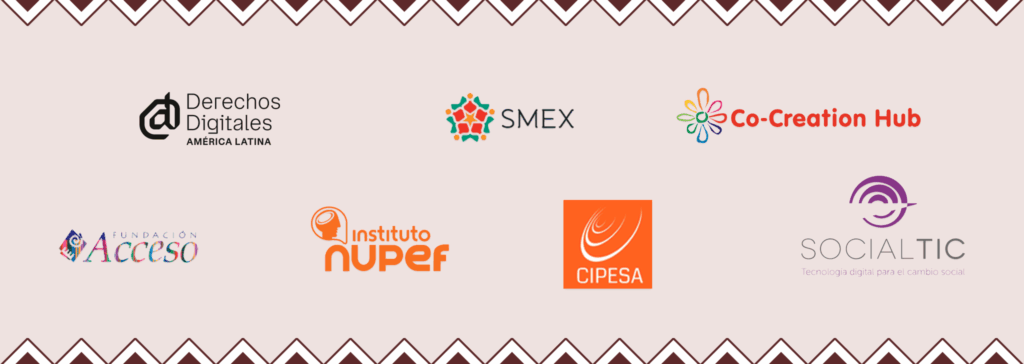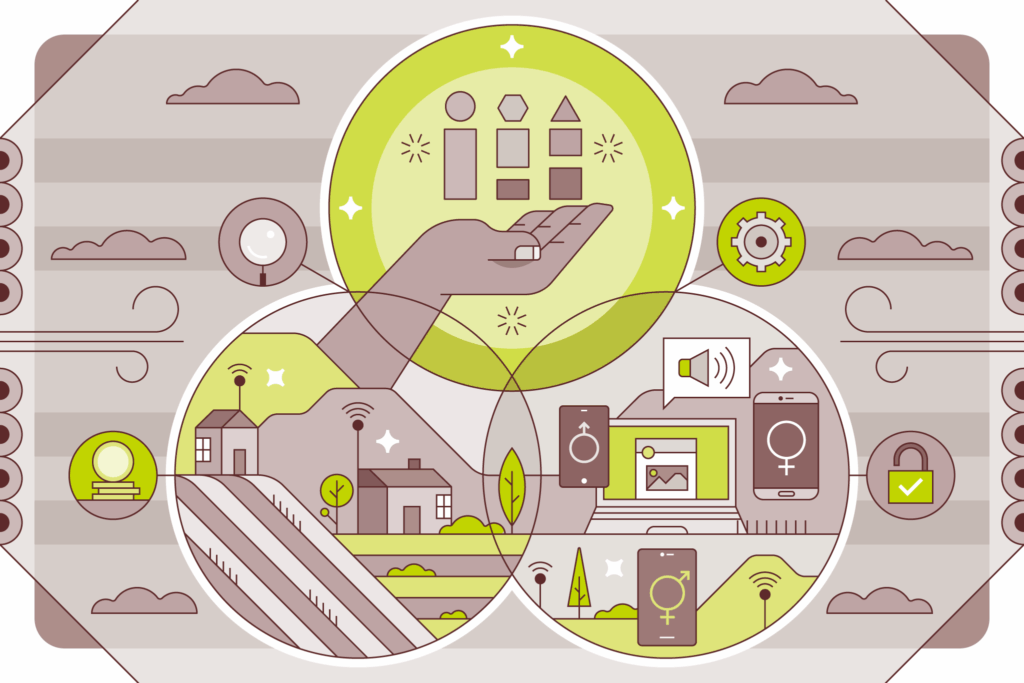In recent months, social justice organizations across the globe have been impacted by financial cuts, while some funders move away from explicit DEI (diversity, equity and inclusion) values. The members of this network are not the exception. In this post, the Collaboration on International ICT Policy for East and Southern Africa (CIPESA) (Uganda) and Fundación Acceso (Costa Rica) share which actions, strategies and policies they needed to strengthen, adapt or continue in this challenging environment.
Commitment to values: at the heart of the mission
“Some global funders moving away from explicitly supporting DEI policies has not altered CIPESA’s commitment – because DEI is not an add-on to CIPESA’s work; it is core to our mission”, says CIPESA’s team. The organization works to defend and expand the digital civic space to enable the protection and promotion of human rights and to enhance innovation and sustainable development, and the digital inclusion of persons with disabilities, rural populations, women, and other marginalized groups is inseparable from what they do. “The shifting funding landscape rather tends to reinforce our conviction that meaningful progress in digital rights must be grounded in equity, diversity, and inclusion”, they add. DEI principles are beyond discussion due to the fact that they shape the design of program, how the organization selects beneficiaries, allocates resources, executes and measures impact. The principles also inform how they conduct research, engage in advocacy and convene global convenings like the annual Forum on Internet Freedom in Africa (FIFAfrica).
CIPESA & social justice values:
✅ The organization developed a framework for assessing the compliance of governments and the private sector with ICT and disability rights obligations as enshrined in international human rights instruments and national legal and policy frameworks. It also supports disability-focused training, and support for civil society.
✅ It addresses access barriers for women, rural populations, and marginalized groups, advocating for equitable funding and assuring an inclusive participation in research and advocacy.
✅ To ensure accessibility, FIFAfrica provides interpretation services – sign and language. Interactions are guided by a Code of Conduct.
✅ CIPESA strengthens South-South partnerships with grassroots organizations, ensuring DEI remains central and resilient regardless of external funding trends.
✅ CIPESA is committed to gender, generational, geographic and religious diversity among staff and governance. Its staff and Board are multinational by country of origin and over 50% are women.
In the Latin American region, Fundación Acceso addresses scenarios where donors may have shifted away from explicit DEI commitments by implementing a principle of protection-centered reporting. “This means that any information shared externally, particularly concerning LGBTIQ+ organizations, defenders of sexual and reproductive rights, or other at-risk communities, is evaluated through a risk and ethics lens”, they say. The organization promotes digital and comprehensive protection for organizations and individuals working to defend human rights. By using this approach they are able to uphold rigorous ethical standards while continuing to embed DEI principles without naming explicitly or exposing individuals or communities to additional risks.
Fundación Acceso & social justice values:
✅ Fundación Acceso integrates differentiated risk analysis, accessibility measures, and gender equitable participation in convenings directly into their protection and documentation protocols. These are treated as inherent quality markers of their work, rather than as separate DEI initiatives.
✅ They implement measurement tools and clear metrics to assess the scope and impact of their diversity and inclusion actions. For example, the monitoring and reporting instruments they develop include diversity indicators from the planning stage, ensuring that every action integrates inclusion objectives either through the activity design itself or through expected outcomes.
✅ At an internal level, they have an ethical framework, the code of conduct, and other protocols and guides aimed at addressing and preventing situations of discrimination based on gender, sexual diversity and disability. They also have a gender and sexual Violence protocol, as well as the Regulation of Sexual Harrasment (by law in Costa Rica). Despite the small size of their teams, they maintain gender equity and diversity among staff, and have multicultural representation from across the Mesoamerican region.
✅ Starting in 2025, their technical documentation and reports are designed to be compatible with accessibility open software and standards, and they make a conscious effort to incorporate inclusive language and visual elements that reflect and respect all forms of diversity and cultures. They incorporated an “accessibility menu” on their website that facilitates navigation for people with visual disabilities.
✅ The organization embed mechanisms to ensure data sovereignty and participant control over their digital narratives, particularly for those who had experienced digital attacks related to their activism.
✅ They promote careful, ongoing, and transparent dialogue between donors and grantees to foster trust and shared understanding. They use Relationship Agreements between partners and allies which includes protocols to prevent and address gender and sexual violence.
✅ The inclusion criteria is also present in their logistics guide for contracting services that ensure accessibility in facilities, and the consultation of attendees in the event organization process on special requirements to ensure enabling spaces, greater protection and inclusion of their participation.
When it comes to the ecosystem, Fundación Acceso strengthens links with disability organizations that they have accompanied. They work in two directions, taking feedback from the organizations with the aim of improving the ways in which they offer support to them. They also have an organizational provision that involves the activation of support networks and economic budgets to respond to the particular needs that defenders with disabilities may present.
About Social Justice Values in the DRN
During a period of approximately eight months, member organizations from the DRN will be reflecting about how they implement social justice values in their projects and initiatives. These organizations share a common understanding: in order to build a more inclusive digital ecosystem, they must first gain clarity about their own values, address internal practices and challenges, and authentically embody these principles before engaging with external partners and communities. Read more here.

To know more about this project you can contact us at hello@digitalresilience.network
Share this post
